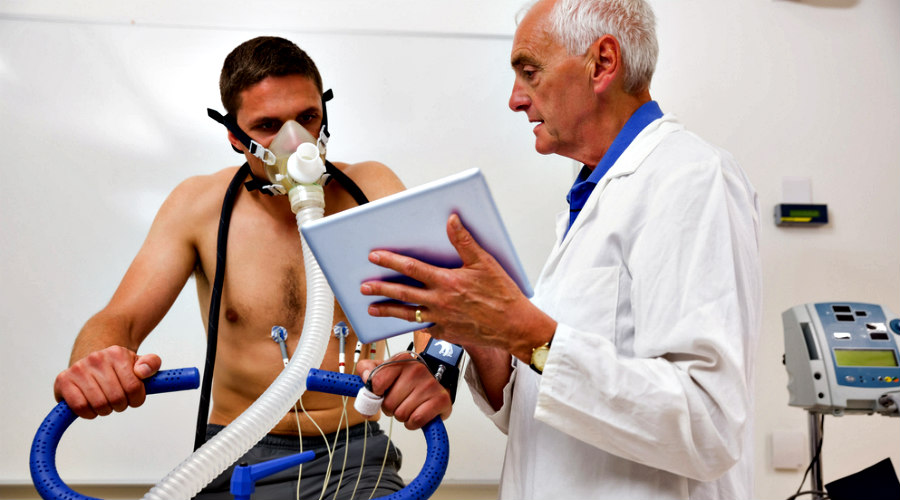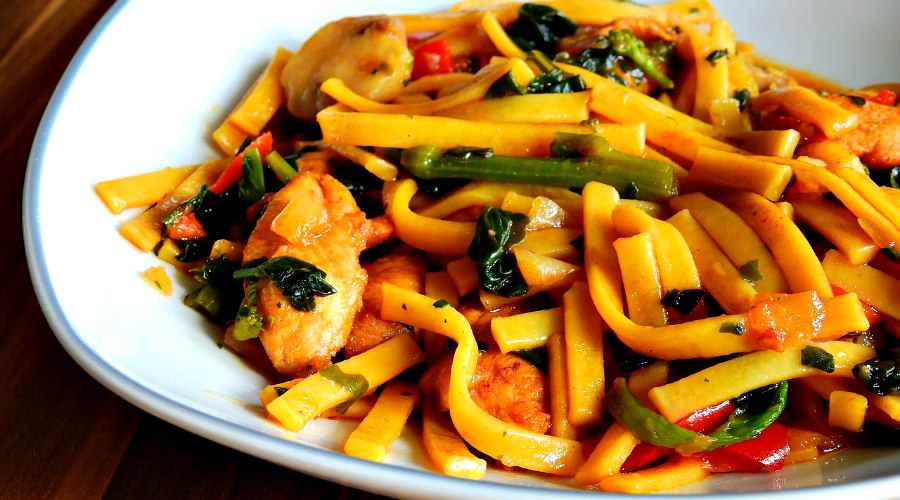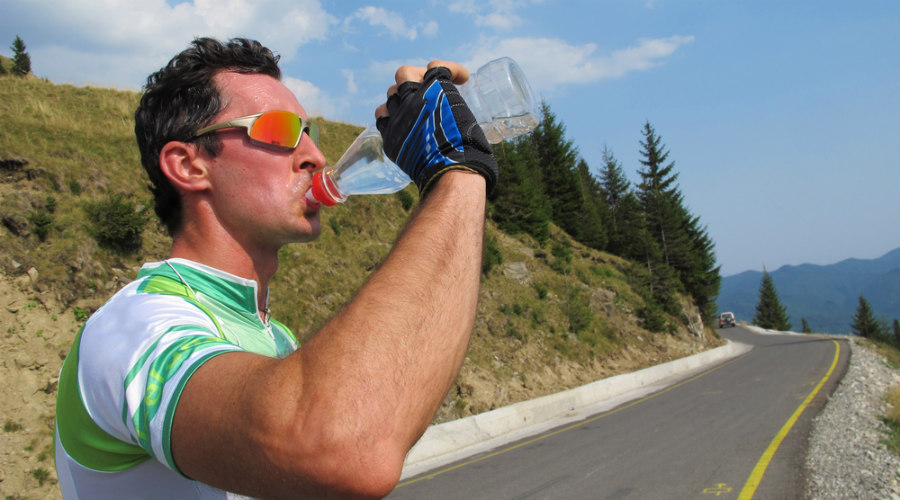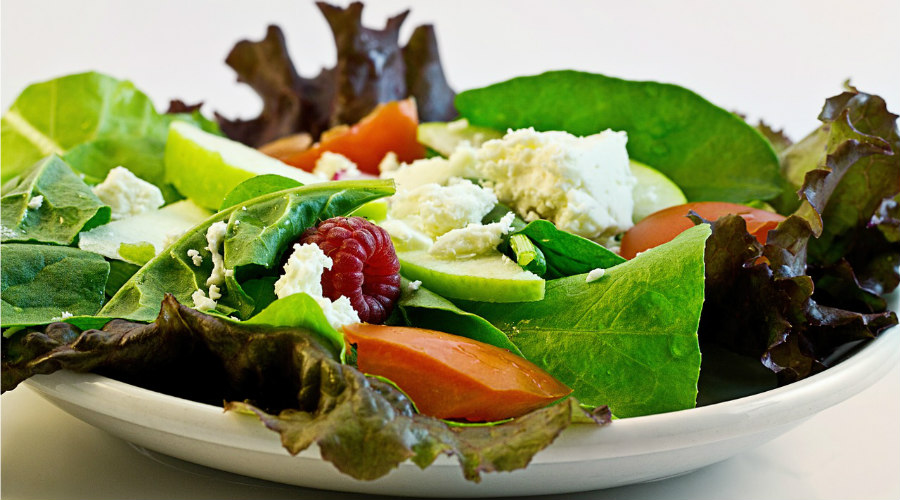In this second installment about
What are the most common bad practices among beginners in cycling and triathlon, we continue with the advice of personal trainers Gerardo Verdú and
Antonio Valenzuela. On this occasion they focus on the importance of performing an effort test and what are the nutritional guidelines that must be followed to avoid injuries and obtain good results.
The importance of conducting an effort test
Verdú is clear that the effort test plays a fundamental role. “I recommend doing it with an expert in physical activity and sports sciences and a cardiologist, to include an electrocardiogram. In this way you can
discard anomalies and avoid sudden death in evidence in which he undergoes an important effort to the heart. In addition, we will know the anaerobic threshold, maximum aerobic power and maximum heart rate. With this data you can perform a more individualized training. It would also be recommended that the maximum oxygen volume be measured in the test. ”
>>> The advantages of performing an effort test in cycling
As for the type of test, Verdú is committed to "an incremental, for example in ramp, cycloergometer, rolling uphill or even in a field test on the athletic or pool track."

In his opinion, "the ideal thing is to carry out a planned training by a professional of physical and sports activity, especially in the beginning, to carry an individualized training program and with some content appropriate to the level of each person.
In the triathlon you have to prioritize in the technique, since there are three different sports. As the
Coach Deportivo Gray Cook, first you have to move well and then you have to move frequently. ”
Valenzuela puts the focus on being advised. For him “depending on the objective that the athlete seeks, if he is more playful or more professional, he should
let yourself be advised by a specialist in the field, because if he does not, he could suffer injuries. ”
The importance of knowing
Gerardo Verdú believes that, in nutrition, “simple things should not be missing, such as following a balanced diet,
With the base in fruits and vegetables. I do not bet on prioritizing supplements, that will be seen later if needed.
Better real food before any supplement magical. There are some with scientific evidence that can help us, but we must know at all times what we are taking and have some bases of what each thing is for. ”

In the diet who arrives at the world of cycling and triathlon, carbohydrates are fundamental, because “they will be our energy source, especially the days before the competition. Before and after training they are also important to help us recover. ”
As for hydration, the two specialists give it a primary importance. Verdú points out that "hydration, together with carbohydrates, helps delay fatigue."
Valenzuela, meanwhile, believes that
“Hydration must be not only water -based, but the drink must have carbohydrates, minerals and vitamins or antioxidants. Carbohydrate will make performance maintain or increase depending on effort, intensity, duration and climatic conditions. The greater the duration, the more important nutrition is. ”

While Valenzuela gives importance to the reduction of saturated fats, his colleague recommends “an ergogenic help with scientific evidence that not everyone tolerates it equally good, such as caffeine. It is a good stimulant prior to training and competition. ”
Balance diet? Maybe not
As for diet and food, Verdú recommends “always consult experts in this area, who are dietitians and nutritionists. They can help us to obtain performance and to know the deficits we have.
Everyone thinks he eats well, that he eats a little of everything, but does not realize that there are things that he is doing wrong ".

Carbohydrate load
When and how to drink carbohydrates has become a constant doubt for those who begin to practice cycling and triathlon. Valenzuela emphasizes that “it is important to increase the intake of complex carbohydrates such as pasta, rice or fruit, before, during and after. The load can be made the night before, avoiding whole wheat bread and the fiber in abundance of vegetables and legumes, which would slow the traffic of carbohydrates, and can generate gases and belly pain. It is important to take fruits, because they are easily absorbed and with little fiber they provide good energy. It is also key to increase unsaturated fats before and after, because it is a fuel that is used, as long as long -term exits are made, and it is a body savings of not spending carbohydrates. ”
And what should be done the day after a competition or high intensity training? “In later days you have to increase the source of antioxidants. You have to leave a day or two until you take fiber again, like vegetables. Above all, it is important to know what training we are going to do, with what demand ”, Valenzuela emphasizes.
 In his opinion, "the ideal thing is to carry out a planned training by a professional of physical and sports activity, especially in the beginning, to carry an individualized training program and with some content appropriate to the level of each person. In the triathlon you have to prioritize in the technique, since there are three different sports. As the Coach Deportivo Gray Cook, first you have to move well and then you have to move frequently. ”
Valenzuela puts the focus on being advised. For him “depending on the objective that the athlete seeks, if he is more playful or more professional, he should let yourself be advised by a specialist in the field, because if he does not, he could suffer injuries. ”
In his opinion, "the ideal thing is to carry out a planned training by a professional of physical and sports activity, especially in the beginning, to carry an individualized training program and with some content appropriate to the level of each person. In the triathlon you have to prioritize in the technique, since there are three different sports. As the Coach Deportivo Gray Cook, first you have to move well and then you have to move frequently. ”
Valenzuela puts the focus on being advised. For him “depending on the objective that the athlete seeks, if he is more playful or more professional, he should let yourself be advised by a specialist in the field, because if he does not, he could suffer injuries. ”
 In the diet who arrives at the world of cycling and triathlon, carbohydrates are fundamental, because “they will be our energy source, especially the days before the competition. Before and after training they are also important to help us recover. ”
As for hydration, the two specialists give it a primary importance. Verdú points out that "hydration, together with carbohydrates, helps delay fatigue."
Valenzuela, meanwhile, believes that “Hydration must be not only water -based, but the drink must have carbohydrates, minerals and vitamins or antioxidants. Carbohydrate will make performance maintain or increase depending on effort, intensity, duration and climatic conditions. The greater the duration, the more important nutrition is. ”
In the diet who arrives at the world of cycling and triathlon, carbohydrates are fundamental, because “they will be our energy source, especially the days before the competition. Before and after training they are also important to help us recover. ”
As for hydration, the two specialists give it a primary importance. Verdú points out that "hydration, together with carbohydrates, helps delay fatigue."
Valenzuela, meanwhile, believes that “Hydration must be not only water -based, but the drink must have carbohydrates, minerals and vitamins or antioxidants. Carbohydrate will make performance maintain or increase depending on effort, intensity, duration and climatic conditions. The greater the duration, the more important nutrition is. ”
 While Valenzuela gives importance to the reduction of saturated fats, his colleague recommends “an ergogenic help with scientific evidence that not everyone tolerates it equally good, such as caffeine. It is a good stimulant prior to training and competition. ”
While Valenzuela gives importance to the reduction of saturated fats, his colleague recommends “an ergogenic help with scientific evidence that not everyone tolerates it equally good, such as caffeine. It is a good stimulant prior to training and competition. ”













